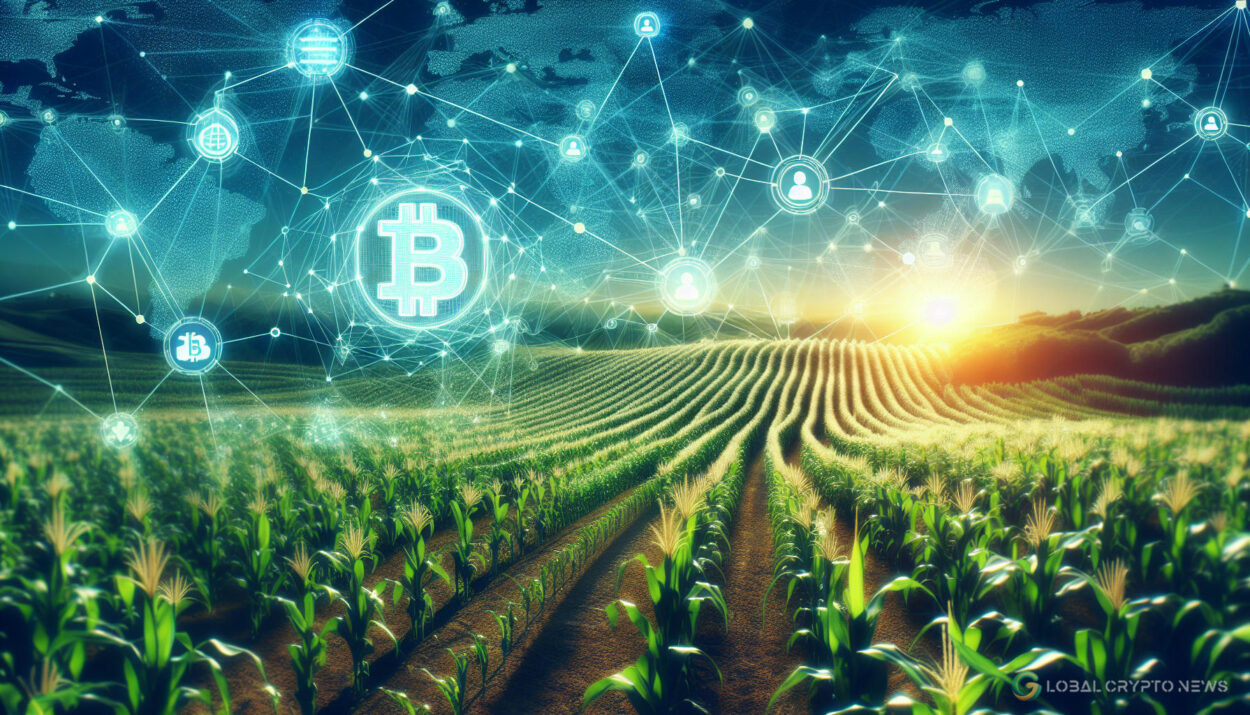Disclosure: The views and opinions expressed here belong solely to the author and do not represent the views and opinions of Global Crypto News’ editorial team.
Agriculture Faces Modern Challenges
Agriculture, the foundation of human civilization, is encountering significant challenges in the 21st century. With climate change impacting traditional farming practices and the global population expected to reach 9.7 billion by 2050, resulting in a 51% increase in food demand, innovative solutions are crucial for the industry’s sustainability.
Tokenization in Agriculture
The tokenization of agricultural trade has emerged as a viable solution to modern challenges. Tokenization involves converting something of value into a digital token that can be used on a blockchain. For example, tokenizing the Mona Lisa as a single NFT makes ownership transfer easier. Alternatively, fractionalizing the artwork into multiple NFTs allows multiple people to own a portion, addressing liquidity issues.
In agriculture, tokenizing contractual agreements rather than the underlying assets offers significant benefits. This approach can lead to instant contract settlements, reduced documentation, and a unified legal structure for trade processes. Blockchain-based transactions can simplify the complexities of transacting between jurisdictions, reducing costs and improving efficiency.
Advantages for Farmers
The benefits of tokenization for farmers are substantial:
- Instant settlements of contracts
- Elimination of unnecessary documentation
- A unified legal structure for trade processes
In the coming years, more marketplaces will adopt blockchain technology to tokenize agricultural trade. This shift will simplify legal contracts through smart contracts, unifying and automating underlying processes, thereby allowing farmers to focus on their core activities.
Addressing Agricultural Sector Challenges
The agricultural sector faces numerous challenges, including inefficiencies and unfair profit distribution within the supply chain. For instance, a study revealed that a 350g four-pack of supermarket beefburgers priced at £3.50 sees the beef farmer earning only 0.03% (0.1p) profit, while the retailer earns 70 times more (7p). Similar disparities exist across other products like mild cheddar, bread, and apples.
Blockchain applications can streamline these processes by automating transactions and reducing intermediary friction, thereby lowering costs and increasing transparency. This can lead to fairer profit distribution, ensuring farmers receive a more equitable share of the profits.
Innovative Solutions for Agriculture
The tokenization of agricultural trade will enhance transparency and efficiency in the supply chain, ultimately benefiting both farmers and end-users. The agricultural industry requires a blockchain-based real-world assets marketplace to bring the $2.7 trillion industry on-chain. Immutable ledger technology can replace outdated paper-based systems, enabling instant transaction settlements with minimal fees.
For example, Oldenburg Vineyards, a major wine producer in South Africa, recently settled an agricultural trade on Solana. Adrian Vanderspuy, owner and CEO of Oldenburg Vineyards, noted:
“We settled the first-ever trade on a public blockchain, and it is now on its way from South Africa to London. The funds came into our account in seconds rather than days, and the fees were £5. We look forward to continuing our partnership and bringing more of our stock on-chain. This will help us reduce transaction and remittance costs, as well as the time it takes to receive payments.”
Such stories mark the beginning of a revolution in agricultural trade.
The Future of Agriculture
As we address the challenges of feeding a growing population, reducing food waste, and ensuring sustainability, tokenizing real-world asset trades offers a promising solution. By leveraging blockchain technology, we can improve transparency and reduce transaction costs, addressing inefficiencies in traditional supply chain systems.
Blockchain technology ensures that all transactions are recorded on an immutable ledger, providing transparency across the supply chain. This can help reduce fraud and ensure fairer prices for farmers and end-users. Enhancing transparency through blockchain’s traceability, immutability, and provenance can secure fair remuneration for farmers, supporting their efforts to feed the global population.
For more updates and news on the impact of blockchain technology on various industries, visit Global Crypto News.






















